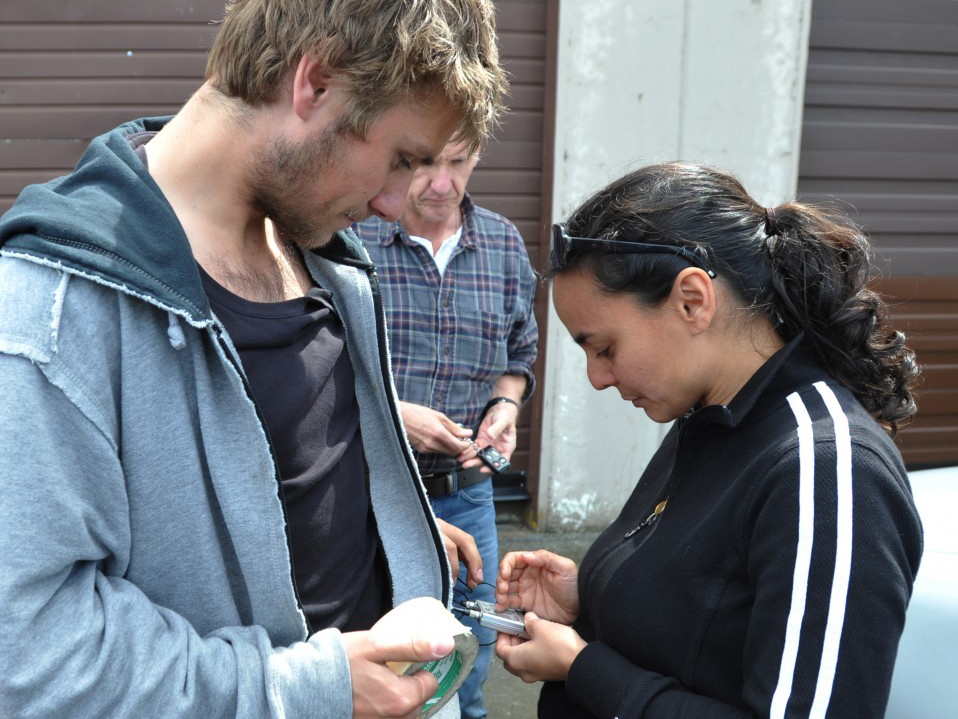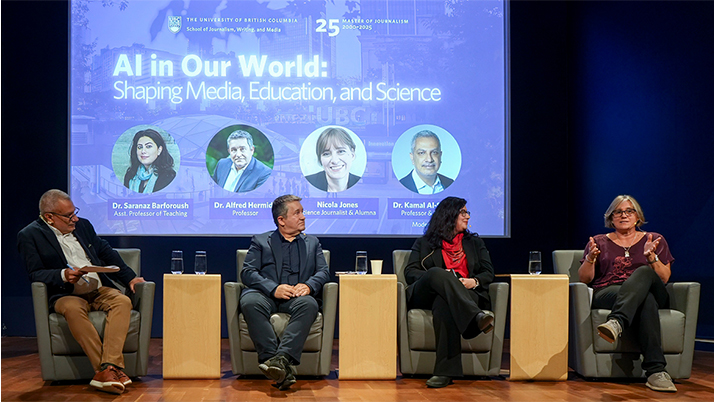Enza Uda graduated from UBC’s School of Journalism in 2000. Since then, she has worked for the CBC as an investigative researcher and producer.
Uda reflected on her time at UBC and how it prepared her for a career in journalism:
On her work experience:
The j-school internship was the key that opened the door to this business for me. I got hands-on experience and I had the opportunity to work with some of the best journalists in the business. I did my first internship at the Philippine Centre for Investigative Journalism. I was also at National Post Business — where I did a short stint as a business reporter — and then I moved on to an internship at CBC News.
On her first national story:
My very first national story is one that has stuck with me for a very long time. At the time, we were investigating the hidden past of Michael Seifert, a Nazi war criminal living in Vancouver for 50 years. He had worked in a Nazi transit camp in Northern Italy, in a town called Bolzano.
His case went all the way up to Italy’s highest court in Rome, but he refused to participate in the proceedings. The Canadian government was silent at the time on what they were doing with Italy’s request to extradite him. Even though there wasn’t much coverage of the case in Canada, the Italian papers were all over it.
As a new researcher for a new investigative program at the CBC, I was put on the story. I speak Italian, so I contacted the lead prosecutor and the investigator in the case, and he sent me his report on the investigation into this man’s past. Through the report, I got in touch with some of the key witnesses in the trial — people who were at the transit camp on their way to concentration camps in Germany and remembered the man.
A CBC crew was sent to Italy, and I tagged along as researcher and translator. We interviewed key witnesses, the investigator, the prosecutor, and Seifert’s lawyers. We came back to Vancouver with a bunch of tape, but the only part of the puzzle missing was Michael Seifert’s voice. He had not only refused the Italian government’s request to appear in court to face his accusers, but he had also refused our requests for an interview.
One afternoon, we drove over to Seifert’s house, and we found him working in his garage. I approached him with the camera and asked him why he wasn’t willing to go to Italy to face his accusers. He dropped what he was doing and ran into the house. That was only picture we had of him, his only response.
The day our story aired, we got a call from the Department of Justice. They officially announced they had initiated the extradition proceedings against Seifert for crimes against humanity. He was eventually sent to Italy.
On lessons learned at the j-school:
Beyond the basics — story focus, structure, fairness and balance, plus research techniques and the ABCs of journalism — you learn the power of what you do and the importance of getting a story on the record.
UBC’s School of Journalism was a great introduction to the craft and business of journalism. I was introduced to some brilliant minds and leaders in the field. And, in addition to learning the basics of journalism, it was key for me for getting hands-on experience in a busy newsroom — in the real world — and eventually a job in the field that I love, investigative journalism.



